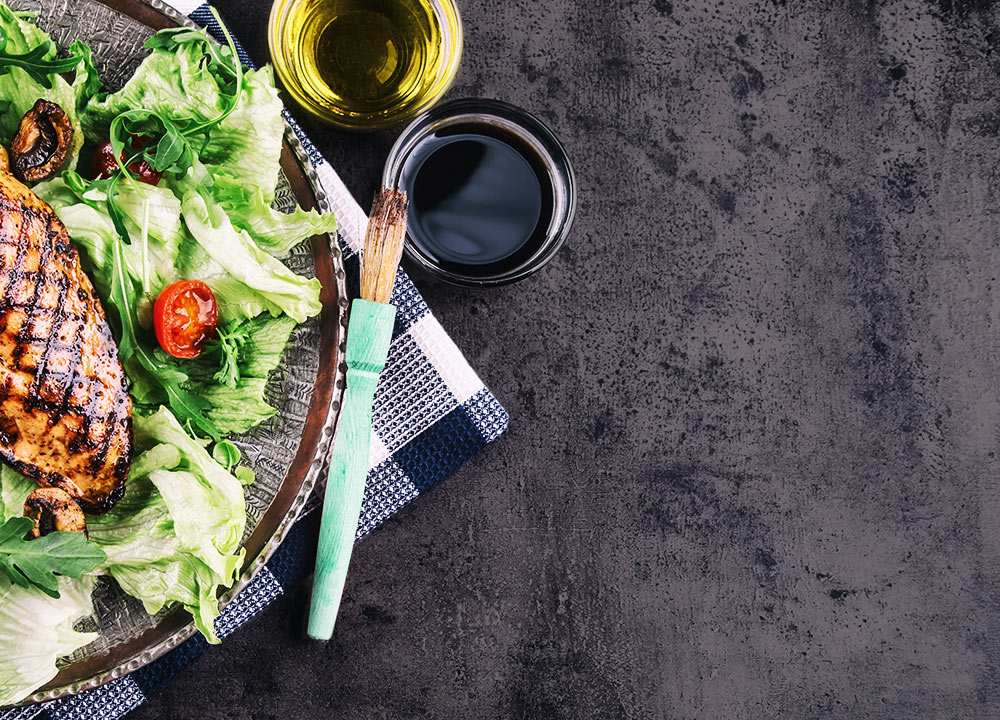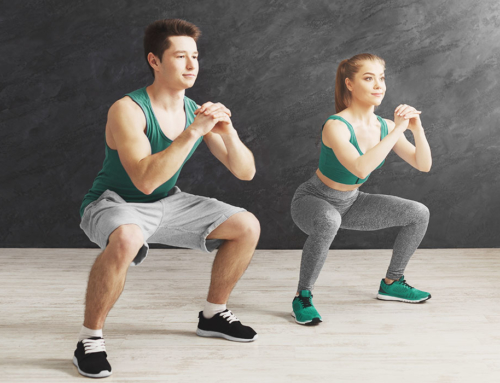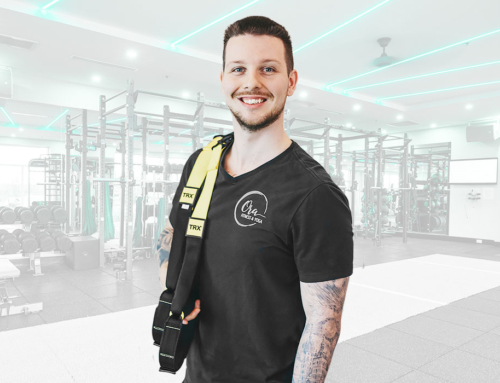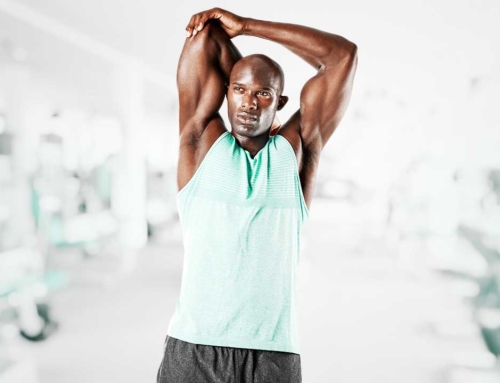Some experts will have you believe that protein is somehow harmful, unnecessary, etc. But remember, we want the best of all possible worlds – the best health, the best body, and the best performance.
It’s hard to achieve all three of these without adequate protein. You may be able to get enough protein without eating complete lean protein at each meal. But I’ve found this very hard to do.
Here are some guidelines:
Women should get 20-30 grams of protein per meal – the equivalent of about one palm-sized portion of protein.
Men should get 40-60 grams of protein per meal – the equivalent of 2 palm-sized portions.
The palm-size approach is straightforward, and your hands go everywhere with you. If you travel for work, you can quickly identify enough protein for yourself. If you are a larger individual, you have larger hands meaning more protein you need to eat. If you are a small person, your hands are smaller, so you’d have a smaller portion.
Now, if you’d like to have a more scientific approach, we can “count your macros” based on your individual needs.
Protein is a foundational and sometimes most important macronutrient. There are three macronutrients you should know. Protein, carbs and fat. We will dive into macronutrient counting later in the ORA 90 challenge, but for now, let’s worry about protein! A recommended suggestion is Men: 1 gram of protein per pound of body weight. Women: 0.8 gram of protein per pound of body weight.
For example, A man weighing 180lbs should ingest 180 grams of protein per day. Seems like a lot right? Protein is essential to building our bodies up, and many of us under eat regularly and have trouble building muscle.
Also – Remember these three things when it comes to protein intake:
- Protein helps us build and maintain lean muscle mass which means less fat on your body.
- Protein has a higher thermic effect than carbohydrates or fat, which means the more protein you ingest, the more calories you burn.
- Protein makes you feel full. Ever catch yourself feeling hungry an hour after a meal? Well, your protein was probably not enough.
Research has proven, when you eat more protein, you lose more fat, hold onto muscle mass more efficiently, suppress hunger, and ultimately eating fewer calories when doing so.
Including a substantial amount of protein with a meal helps turn on the appetite satisfaction signals in your gut. Research subjects given higher protein meals report greater fullness and decreased hunger than those on standard protein intakes who are taking in the same calories.
By following this advice above, you’ll not only ensure an adequate intake of protein, but you’ll also maximally stimulate your metabolism, improve your muscle mass and recovery, and reduce your body fat.
Here are a few examples of lean, complete protein sources:
- Ground beef, chicken, turkey, bison and venison
- Salmon, tuna, cod & roughy (a type of fish)
- Eggs
- Cottage cheese, yogurt & part skim cheese
- Tofu & tempeh (soy product similar to tofu)
- Soy burgers, jerky and bacon
- Whey protein & casein
- Milk protein blends
Remember protein is not limited to just breakfast, lunch and dinner. Every meal or snack, every 3-4 hours, should contain complete lean protein.
What if you are in a rush for work, and can’t get a whole meal in, or have no food available?
Things like prepped protein shakes and protein bars can go a long way. The protein blend does matter as well. There are many protein powders out there that are low quality and can cause more harm than good. That’s why taking some time to research some protein brands can be beneficial to your health. Going with trusted brands that have a standard of a high-quality protein blend, and are recognized as a safe protein for high-level athletes, and is also non-GMO and organic should be what you look for in a protein powder. With labels like these, you’ll know you can trust what’s going into your body.
There are also vegan protein powders as an option. There are protein powders made out of soy, pumpkin, alfalfa, hemp, or a blend of all of them put together.
Many people complain that the taste has some getting used to, or it’s nothing like other protein powders. There is definitely a different taste to vegan protein powders, but there are some brands on the market that do a great job masking that chalky non-flavour taste. You just need to go out there and try some samples before committing to an entire tub.
Remember protein is essential to your success. Every time you sit down to eat check to see if you have enough protein in your meal. Practice this habit throughout the challenge and you’ll see the results you’ve envisioned when you first started the challenge.









Leave A Comment